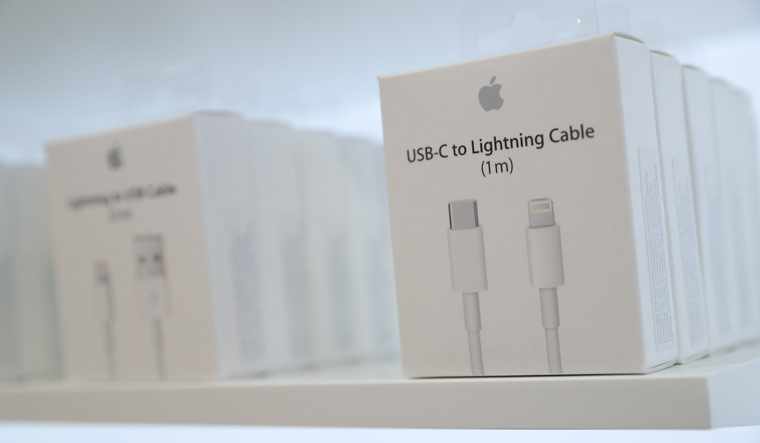The members of the European Parliament reached an agreement on Tuesday to make USB Type-C as the common charging port for handheld devices like mobile phones, tablets and cameras across the European Union. The new regulation comes into effect from autumn, 2024.
According to a release from the European Parliament, the MEPs have agreed on the amended Radio Equipment Directive that establishes a single charging solution for certain electronic devices. This law is a part of a broader EU effort to make products in the EU more sustainable, to reduce electronic waste and make consumers’ lives easier, a release said.
A release from the European Parliament's Internal Market and Consumer Protection Committee says that under the new rules, consumers will no longer need a different charging device and cable every time they purchase a new device and can use one single charger for all of their small- and medium-sized portable electronic devices.
Mobile phones, tablets, e-readers, earbuds, digital cameras, headphones and headsets, handheld video game consoles and portable speakers that are rechargeable via a wired cable will have to be equipped with a USB Type-C port, regardless of their manufacturer, the release said. Laptops will also have to be adapted to the requirements within 40 months after the new rule enters into force. Under the new rule, the committee has also harmonised the charging speed of fast chargers and it allows consumers to charge their device at same speed using any compatible charger.
Under the new regulations, users can choose whether they are required to buy a charger along with their new electronic device, a release said. The EU estimates that on implementation, users would be able to save up to 250 million euros a year on unnecessary charger purchases. The Parliament found that disposed and unused chargers were responsible for about 11,000 tonnes of e-waste annually.
However, the decision may mean trouble to American tech company Apple, which uses the Lightning port for charging on its handheld devices like iPhones and iPads. In a press conference following the committee's decision, Thierry Breton, commissioner for the EU’s internal market, responded to a question on whether the rule was made targeting Apple.
He was quoted by The Verge as saying, “The rule applies to all and sundry. It’s not adopted against anybody. We’re working for the consumers, not the companies, and we have to give these companies rules; rules that are clear in order to enter the internal market.”
A spokesperson of Apple told Reuters in September last year that the move could stifle innovation. According to a release, once the draft is approved in the May plenary session of the European Parliament, MEPs will start talks with EU governments on the final shape of the legislation.











